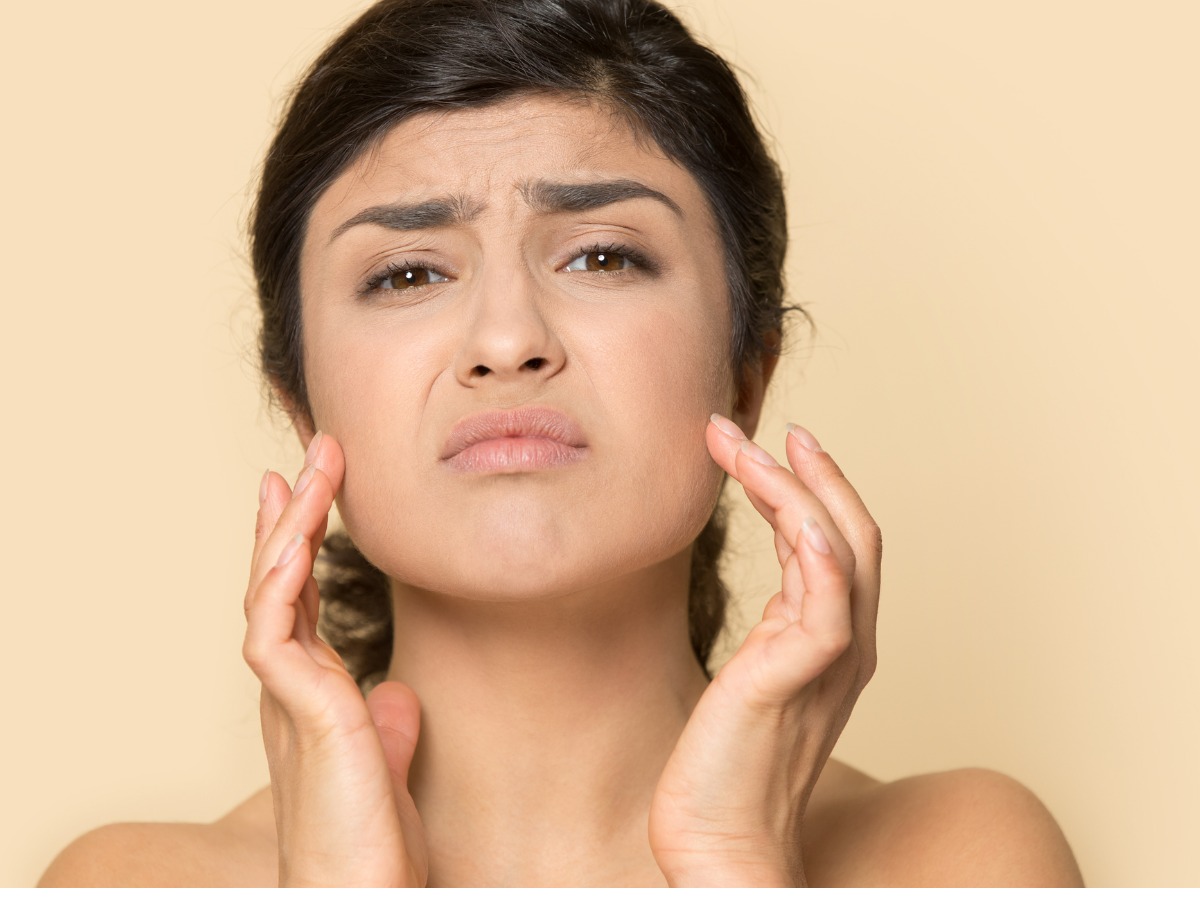Wrinkles are also known as rhytides and these are folds on the skin that are produced due to a decrease in proteins like elastin and collagen in the skin that make it more prone to any kind of damage.
According to doctors of Mayo Clinic, wrinkles are common in the areas that are more exposed in general like hands, face, and neck. Wrinkles might be the result of old age or over-exposure to sunlight and pollution.
As a person grows old, natural oils of the skin tend to dry and become more fragile. Therefore, loose skin, creases, and fine lines increase with passing age.
But no more! We cannot prevent wrinkles altogether but can definitely take precautions and make changes in lifestyle to delay the appearance of fine lines and wrinkles.
Use Sunscreen
Sunscreen has always been considered an important part of skincare. Dermatologists suggest that people should wear sunscreen even when they are inside their houses and should not miss this step during winters.
According to PubMed Central, sunscreens up to 30 SPF can prevent skin cancer, delay aging, and prevent any other kind of skin damage as well. Applying moisturizing sunscreen in winters or at home can protect your skin in the long run.
Quit Smoking
According to the doctors of Mayo Clinic, smoking is also one of the contributing factors that lead to premature aging, fine lines, and wrinkles on the skin.
Smoking leads to a reduction in skin fibers like elastin and collagen which makes the skin harder and less elastic as compared to the skin of people who do not smoke. People who smoke tend to have deeper wrinkles on their face especially near the mouth, lips, eyes, and between the brows.
Balanced Diet
According to the US National Institutes of Health (NIH), a balanced diet plays a crucial role in maintaining healthy and younger-looking skin. A balanced diet can delay skin aging and help protect the skin that acts as a barrier for the entire body against external aggressions.
One nutrient that helps maintain younger-looking skin is antioxidants found in abundance in beans, kale, grapes, etc. These nutrients help fight the oxidative stress that damage the skin cells and reduce the characteristics of aging as well.
Use Retinoids
Recently, retinoids have become popular and the products like these with vitamin A have always been given their due credit in reducing fine lines, wrinkles, and possessing anti-aging properties.
According to PubMed Central, retinoids promote the growth of new skin cells and the production of collagen as well as hyaluronic acid that protects the skin and prevents the breakdown of collagen that plays a crucial role in maintaining smooth and elastic skin.
Consume Less Sugar
According to US NIH, excess consumption of sugar leads to a process called 'glycation' that leads to the production of AGEs which are harmful for the skin. AGEs not only damage the skin but break down the collagen fibers making the skin look less elastic, drier, and older.
AGEs are also found in food prepared by frying or grilling beside the sugary products and therefore, one must also reduce the consumption of foods prepared in this way and use methods like baking, boiling, and steaming for cooking.
Change Your Sleeping Position
Different people find comfort in different sleeping positions but you should try to sleep on your back instead of on your side or on your stomach. When you sleep on your sides or stomach, your face gets pressed against the pillow forming sleep lines and wrinkles.
According to Healthline, a person spends one-third of his life sleeping and therefore they must be careful to sleep in a position that prevents the repetition of these sleep lines and prevents in their deeper formation.
Use Coconut Oil
According to studies conducted by PubMed Central, coconut oil has shown healing, anti-microbial, and anti-bacterial properties. It also has moisturizing properties and that is why it is used by dermatitis patients to get rid of dryness.
While it is believed that coconut oil promotes the production of collagen in the skin that leads to more elastic and younger-looking skin, more research is required to confirm its anti-aging benefits.

